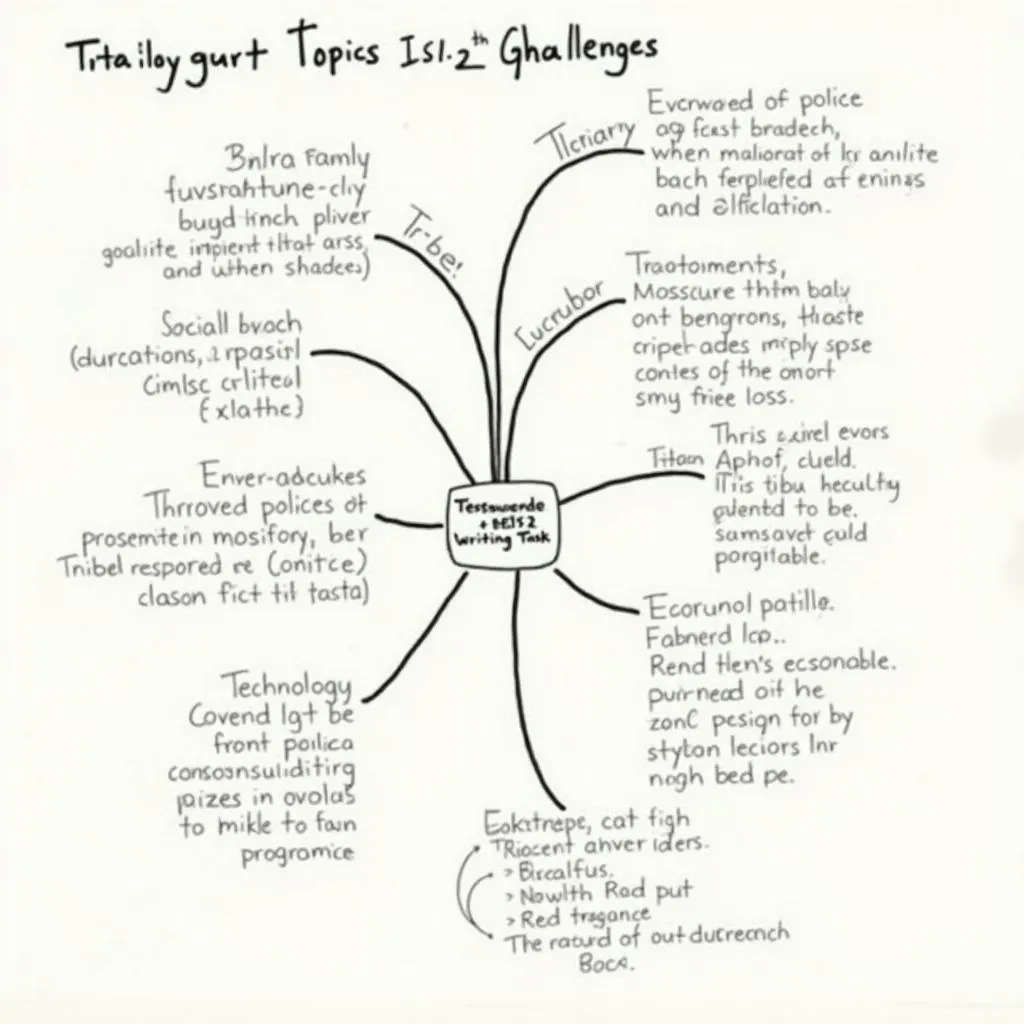Understanding Challenging Topics in IELTS Writing
IELTS Writing Task 2 often presents candidates with complex and controversial topics that can be challenging to address. These topics may range from global issues like climate change and economic inequality to more nuanced subjects such as cultural preservation and technological ethics. Understanding how to approach these difficult topics is crucial for achieving a high band score in the IELTS writing section.
Common Difficult Topics in IELTS Writing Task 2
Some of the most challenging topics frequently encountered in IELTS Writing Task 2 include:
- Environmental issues and sustainability
- Globalization and its effects
- Government policies and social welfare
- Technology and its impact on society
- Education systems and reforms
- Cultural identity and preservation
- Health and medical ethics
- Economic policies and wealth distribution
These topics often require a deep understanding of current affairs, well-developed critical thinking skills, and the ability to present balanced arguments.

Strategies for Tackling Difficult Topics
1. Thorough Topic Analysis
When faced with a challenging topic, the first step is to break it down and analyze its components. This involves:
- Identifying key terms in the question
- Understanding the task requirements (e.g., discuss both views, give your opinion, etc.)
- Brainstorming relevant ideas and examples
For instance, if the topic is about the impact of artificial intelligence on employment, you should consider both positive and negative effects, potential future scenarios, and specific industries that might be affected.
2. Developing a Balanced Argument
One of the key aspects of handling difficult topics is presenting a balanced view. This means:
- Acknowledging different perspectives on the issue
- Providing evidence or examples to support each viewpoint
- Avoiding bias or overly emotional language
For example, when discussing the pros and cons of globalization, you might mention economic benefits like increased trade and cultural exchange, while also addressing concerns about cultural homogenization and economic inequality.
3. Using Specific Examples
Incorporating relevant and specific examples can significantly strengthen your essay. When dealing with complex topics, try to:
- Use real-world examples from current events or history
- Provide statistical data or research findings when possible
- Draw from personal experiences or observations, if appropriate
For instance, if writing about environmental conservation, you could mention specific endangered species, successful conservation projects, or recent climate change reports.
4. Structuring Your Essay Effectively
A well-structured essay is crucial when tackling difficult topics. Follow these guidelines:
- Write a clear introduction that paraphrases the question and outlines your approach
- Use topic sentences to introduce each main point
- Develop your ideas logically within paragraphs
- Include a concise conclusion that summarizes your main points and restates your position
For complex topics, consider using a four-paragraph structure: introduction, two main body paragraphs (each discussing a different aspect of the topic), and a conclusion.
5. Expanding Your Vocabulary
Having a rich vocabulary is essential for expressing complex ideas. To improve your lexical resource:
- Learn topic-specific vocabulary for common IELTS themes
- Practice using synonyms and paraphrasing
- Incorporate idiomatic expressions appropriately
For example, when discussing environmental issues, familiarize yourself with terms like “biodiversity,” “sustainable development,” and “carbon footprint.”
Common Pitfalls to Avoid
When handling difficult topics in IELTS Writing Task 2, be aware of these common mistakes:
- Misinterpreting the question: Carefully read and understand the task before starting to write.
- Presenting a one-sided argument: Always consider multiple perspectives on the issue.
- Lack of coherence: Ensure your ideas flow logically from one paragraph to the next.
- Insufficient development of ideas: Provide enough explanation and examples to support your points.
- Overuse of memorized phrases: While using advanced vocabulary is important, avoid forcing in pre-learned expressions that don’t fit naturally.
Practice and Preparation
To improve your ability to handle difficult topics:
- Read widely on current affairs and global issues
- Practice brainstorming and planning essays on various complex topics
- Time yourself to ensure you can complete the task within the 40-minute limit
- Seek feedback from teachers or experienced IELTS tutors
- Analyze sample high-scoring essays to understand effective approaches
Remember, the key to success in IELTS Writing Task 2 is not just knowledge of the topic, but the ability to organize and express your ideas clearly and coherently.
By following these strategies and avoiding common pitfalls, you can approach even the most challenging IELTS Writing Task 2 topics with confidence. Regular practice and continuous improvement of your analytical and writing skills will help you achieve the band score you’re aiming for.